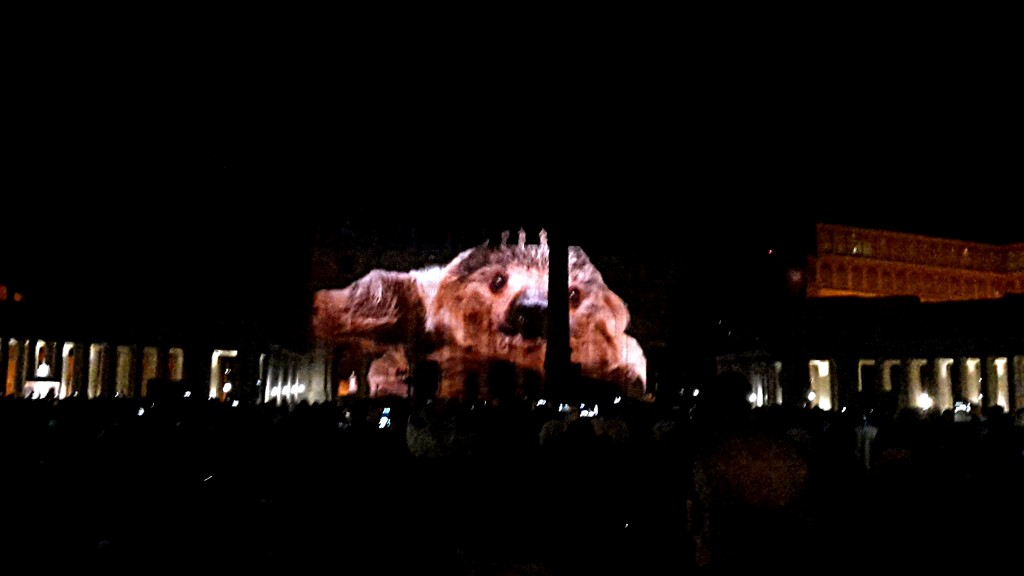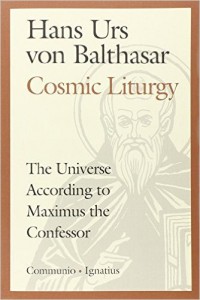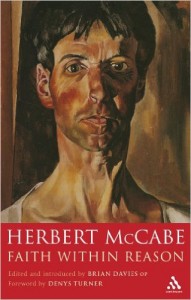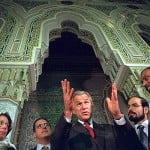
The projections of animals and non-Catholic human-animals onto the facade of St. Peter’s led to some predictably apocalyptic responses.

They were apocalyptic in the sense of revealing something that’s usually hidden from view. The almost automatic accusations of sacrilege, blasphemy, and apostasy from some Catholics against their Supreme Pontiff reveal some important weaknesses in modern Catholic theology. I won’t quote or link to them, however, Mark Shea has.
Modern theology is based upon a Neo-Thomist separation between nature and grace, between the world and God, between immanence and transcendence. This kind of split is actually more at home in the Protestant Imagination, rather than in the more traditional Catholic imagination. That’s something Michael Martin points out in detail in his piece on Laudato Si’ as the most sophiological encyclical of all.
Anyway, I thought that I would enlist Herbert McCabe’s book on Aquinas, Faith Within Reason, specifically, the chapter, “A Very Short Introduction to Aquinas” to talk about these issues.
Here is what this exceedingly short intro (only 14 pages) has to say about the limitation of a modern theology that would keep God distant from the world:
1. Modern Catholic theology forgets not saying God’s name isn’t tanamount to saying he’s not there:
And this whole [hierarchy of Creation], [Aquinas thought], was created and sustained in being by God. He also thought it was the business of the natural sciences to trace this order of natural explanations (to show how the universe explains its own character). For this reason, he thought that there was no need for scientists to bring God into their scientific explanations. God is simply presupposed to be at the heart of the existence of the whole world that the scientist studies. It is quite true that God causes the kettle to boil, as he causes everything, but the scientist is interested in the natural created causes that God uses to bring about this effect.
2. Modern Catholic theology forgets God continually (non-stop) sustains everything in being, including sloths, monkeys, non-Catholics, and therefore obsessing about beginnings, or, obsessing about talking in a specifically religious register all the time isn’t traditional:
The creative act of God is not, for him, something unique to the beginning but to the continuing existence of anything at any time. In fact, he thought that God could easily have created a world which never had a beginning. For [Aquinas] the creative act of God is at work within the work of every creature all the time.
3. Modern Catholic theology forgets miracles aren’t a special presence of God, since God is always present to us in his sustaining love, instead, they are a special absence of something else:
So Aquinas didn’t see miracles as God intervening to interfere with the world. God, thinks Aquinas, cannot literally intervene in the universe because he is always there–just as much in the normal, natural run of things as in the resurrection of Christ or in any other miraculous event. A miracle, for Aquinas, is not a special presence of God; it is a special absence of natural causes–a special absence that makes the perpetual presence of God more visible to use.

In the end all the people, animals, and things are part of God’s cosmos (the theological word for this is Creation) and are therefore fair game for religious use even if they are not transparently labeled as “religious.” The latter is a modern obsession unknown until the last four hundred years.
Pope Benedict XVI, being the radical that he was and is, understood this when he invited activist Al Gore and social media hippie Kevin Wall to put on a Live Earth concert over at St. John Lateran.
To close, it’s clear there’s nothing wrong with the ZooTV projections the other day at the Vatican (as evidenced by a hit calendar of Russian Orthodox priest posing with cats). They are meant to take contemporary Catholic theology out of a typically modern theological cul-de-sac of excessive preoccupation with the human subject and remind us that we inhabit a common home with all of God’s creatures. One really odd thing about all of this is that the Neo-Thomists who took the early 20th century modernists to task were just as modern as their opponents in their reliance upon modern subjectivist theology. It is a theology that cuts humanity’s ties to the rest of creation.
Ironically, legendary U2’s ZooTV concert series, one of the greatest media shows in rock and roll history, is a reminder how despairingly flat our world becomes when we become postmodernists or Neo-Thomists and forget there’s anything beyond our chatter:
You should go deeper into the intentions of Laudato Si’ by reading my interview with Anthony Annett, an actual Catholic climate change expert, on the topic of Francis’s integral ecology.











